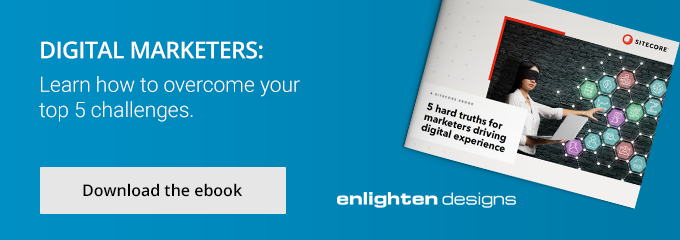What Is Context?
What does context within your personalisation strategy mean?
Marketing messages need to be relevant to a customer. Here's an example to illustrate. Let’s say Jack’s company is preparing to invest in a new CRM. The team that is responsible for researching options contacts a few CRM vendors.
One vendor sends material about how to increase your CRM’s ROI. Another sends an article about customer service software. While the article is interesting, Jack and his team aren’t looking for that kind of solution.
Jack and the research team decide to ignore the vendor that sent them irrelevant marketing materials. It shouldn’t come as a surprise that the team chooses the vendor that provided pertinent resources. Quite frankly, why would they waste their time with a vendor that didn’t understand their needs?
Why would you waste your time with a vendor who doesn’t understand your needs?
How Can You Incorporate Context into Your Personalisation Strategy?
How do you incorporate context into your personalisation strategy? There are four questions you should ask yourself:
- Where is the customer in his or her journey?
- What do you know about the customer?
- Does this customer’s journey match a journey that you’ve already mapped? If so, how well does the journey match?
- How close is the customer to making a purchase?
The answers to these questions guide your personalisation strategy. If you know the customer is at the very beginning of his or her journey, you provide materials that are more introductory in nature; you don’t want to scare that person off with complicated, technical messaging.
Today, it’s quite easy to learn about a customer. If that person has purchased from you in the past, you have information about his or her preferences and other details. There are also many details that you can gain from social media as well as previous responses to marketing messaging.
Today, it’s quite easy to learn about a customer.
Marketing technology has also made it significantly easier to map the customer journey. Once you’ve developed customer journey maps that match your customers’ path to your services, you can compare where potential customers are currently and then offer them resources that they’ll find useful and relevant.
Knowing where your customer is on his or her journey is also crucial. If a customer is ready to buy, he or she won’t be interested in introductory resources. In contrast, at earlier points in the customer journey, materials that are more explanatory in nature would be welcome.
The Power of Contextual Personalisation
The idea of contextual personalisation isn’t new. In April 1995, a Harvard Business Review article explained, “Customers… do not want more choices. They want exactly what they want—when, where, and how they want it—and technology now makes it possible for companies to give it to them.”
There’s clear evidence that contextual personalisation has a positive impact on your personalisation strategy; the ability to individualise an email marketing campaign is the most effective personalisation strategy for 50 percent of marketers. Moreover, when marketers quantify the effect of tailoring Internet experiences, they see an average of a 19 percent increase in sales.
Contextual personalisation has a positive impact on your personalisation strategy.
According to one-third of marketers, a strong personalisation strategy will be the most important priority to the field in the future. Yet, an astonishing 83 percent of marketers say that creating personalised content is their greatest challenge. As a result, they alienate customers with generalised or ill-timed content.

Successfully Incorporating Contextual Personalisation into Your Personalisation Strategy
Incorporating contextual personalisation into your personalisation strategy doesn’t have to be challenging. When you have the right tools, it becomes significantly simpler.
Microsoft Dynamics 365, the cloud-based CRM, allows you to personalise content so it’s relevant and timely for customers and prospects. With Microsoft Dynamics 365, you can run multi-channel campaigns to attract prospects. You can tailor email marketing, web landing pages, events, SMS integration, phone calls, and custom channels to work to reach the right prospects.
With the right tools, incorporating contextual personalisation into your personalisation strategy becomes easy.
In addition, Microsoft Dynamics 365 lets you utilise configurable templates, design tools, and Microsoft Stream videos to prepare content and prepare customer journeys based on engagement. That way, you can find customers when they’re ready. Also, you can tailor website visits by customising landing page based on attributes and past behaviour. That prevents you from repelling customers with irrelevant information or offers.
Another capability that Microsoft Dynamics 365 provides is to nurture leads from LinkedIn. The world’s largest professional networking site is a wealth of leads if you cultivate them properly. With Dynamics 365 Connector for LinkedIn, you can target matched audiences, develop leads, and create a buyer’s journey based on the platform’s content and interactions you’ve had with the lead on LinkedIn.
Choose Enlighten to Incorporate Contextual Personalisation into Your Personalisation Strategy
For over 20 years, Enlighten has helped its customers create digital experiences that delight and attract. We’re proud Microsoft partners, and we know how to increase the ROI on Microsoft Dynamics 365 deployments. Moreover, we’re experts in developing and implementing a personalisation strategy for clients.
Want to learn more about how contextual personalisation can not only boost your personalisation strategy but attract more customers and boost your bottom line as well? Contact us.

